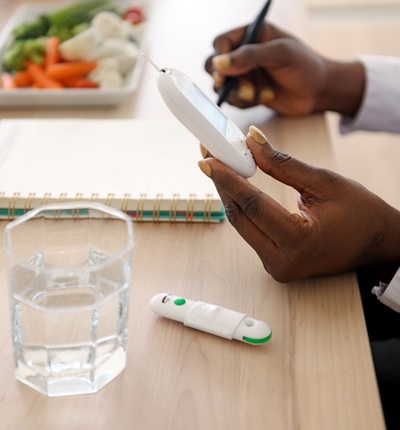
Lawyers investigate Omnipod Insulin Management System
Product liability solicitors acting for client who suffered potentially fatal diabetic ketoacidosis
Posted on 26 November 2018
Lawyers are investigating an alleged ‘near fatal’ incident involving the Omnipod Insulin Management System, a personal insulin pump which they claim failed causing their client to suffer potentially fatal diabetic ketoacidosis.
For individuals living with Type 1 diabetes, personal insulin pumps, such as the Omnipod Insulin Management System offer the possibility of controlling their condition, and regulating their intake of insulin, without the need for repeated injections.
The Omnipod, manufactured by US company, Insulet Corporation, was first made available in the UK in 2010. The system comprises a Pod, a small adhesive waterproof insulin patch with an automated needle or cannula inserted into the skin and a personal diabetes manager (or PDM) which is an electronic unit which allows the individual to monitor blood glucose and other biological markers.
The PDM is a wireless, hand held device that programs the Pod with insulin delivery instructions. Insulet market the product as providing users with ‘more freedom, more confidence’.
Since 2015, there have been repeated product recalls of the Omnipod, both in the US and the UK. All of these recalls have concerned the failure of the cannula or needle to properly deploy meaning that when a user attaches the unit to their skin (for example an arm or the abdomen), whilst the needle may initially insert fully into the skin it may later become detached, unknown to the user. This is a very serious issue, resulting in the diabetic user failing to be provided with the right amount of medication at the right time, the consequences of which can be potentially fatal. In an Urgent Field Safety Notice published by the UK Medicines and Healthcare Regulator Authority, in July 2015,
Insulet describe the problem as follows: ‘the cannula either fails to fully deploy or completely retracts after deployment. In either case, the failure occurs without an alarm, and the Pod will continue to pump insulin. However, the insulin may not be properly delivered and in these circumstances, you may not receive the expected dose of insulin’
In such circumstances the patient can experience a condition called diabetic ketoacidosis (DKA), as a result of consistently high blood glucose levels.
This happens when a severe lack of insulin means that the body cannot use glucose for energy and so the body begins to breakdown other body tissue as an alternative energy source, resulting in ketone production. This is a potentially life-threatening condition.
The symptoms of early stage DKA can closely resemble flu, including dizziness, abdominal pain, raised temperature and vomiting: If left un-treated these symptoms can rapidly progress leading the patient to become comatose.
Zahra Nanji, solicitor in the product liability team, at Leigh Day, commented; “We are at an early stage of investigation on behalf of our client, however, we are concerned that the alleged pattern of failure with this type of device which has been the subject of repeated product recalls by Insulet, since 2015.
“Given the extent to which Omnipod users rely upon the system to deliver insulin, and the life-threatening consequences, of a potential failure with the system, it is vital that any design fault with the product is rectified as soon as possible.”

